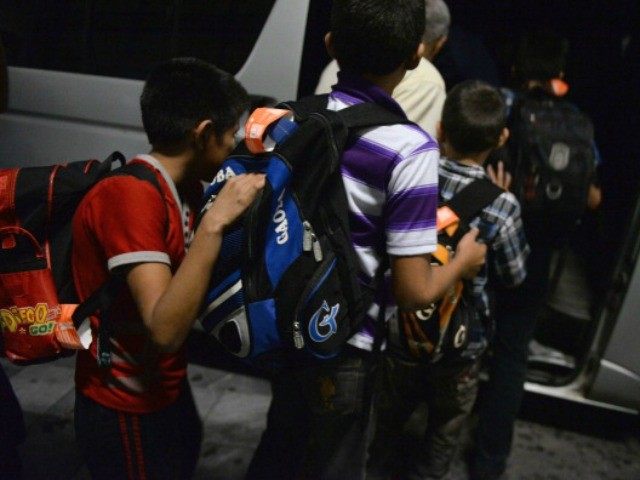Unaccompanied Central American minors leaving their home countries to migrate north are turning down Mexico’s offer of refuge and instead seeking to make it all the way to the United States, according to a report from the Center for Immigration Studies.
Last week Human Rights Watch chastised Mexico for what the group called a “closed door” to “Central American refugee and migrant children.” Human Rights Watch issued a report detailing that less than one percent of unaccompanied Central American minors apprehended in Mexico are granted refugee status.
“For the period from January to November 2015, when 52 unaccompanied children received international protection, Mexican immigration authorities apprehended 16,869 unaccompanied children from the Northern Triangle, meaning that of those apprehended children, only 0.3 percent received international protection in the first 11 months of 2015,” that report reads.
The Northern Triangle is made up of Guatemala, Honduras, and El Salvador.
Mexico responded to Human Rights Watch, according to CIS, with a statement arguing that is the unaccompanied minors who are declining offers of refuge because their primary objective is to make it to the U.S.
“All unaccompanied girls, boys, and adolescents are offered refuge in Mexico and the [National Institute for Migration] has documented that minors reject it because their sole purpose is to reach the United States or to be reunited with their closest relatives because in Mexico they would not have to opportunity to do so,” Mexico said in a press release, according to a CIS translation.
According to the CIS report, authored by Kausha Luna, the implication is that once apprehended and given the option of remaining in Mexico as a refugee, the unaccompanied minors are instead saying they would rather continue to the U.S. or be sent home to be with relatives.
“In light of this information several questions should be raised,” Luna wrote. “What credibility do these minors have to claim asylum when they reach the United States, after they cross through a country which offers them refuge? If these minors are fleeing violence in their countries, why do they choose to return rather than accept refuge in Mexico? The touted argument, ‘they are fleeing for their lives, so we must take them in,’ certainly sounds less convincing after they forgo refuge in Mexico and further endanger their lives as they continue to the U.S. border.”
In a statement accompanying his report, senior Human Rights Watch children’s rights counsel Michael Bochenek, said that while Mexico’s policies appear sound on their surface, in practice it is not the case.
“On paper, Mexican law appears to provide every protection for children who have fled their home countries in fear of their lives,” Bochenek said. “But only a handful actually receive asylum, reflecting that even though Central American children and adults face serious threats, the government is not giving adequate consideration to their claims.”
In recent years hundreds of thousands of unaccompanied minors and family units from Central America have been apprehended illegally entering U.S., claiming to be fleeing violence in their home countries. The influx has ebbed and flowed from month to month but has continued to remain at exceedingly high levels as ultimately few have been deported from the U.S.
Mexico stepped up its enforcement efforts in 2014 to stem the influx through its borders.

COMMENTS
Please let us know if you're having issues with commenting.